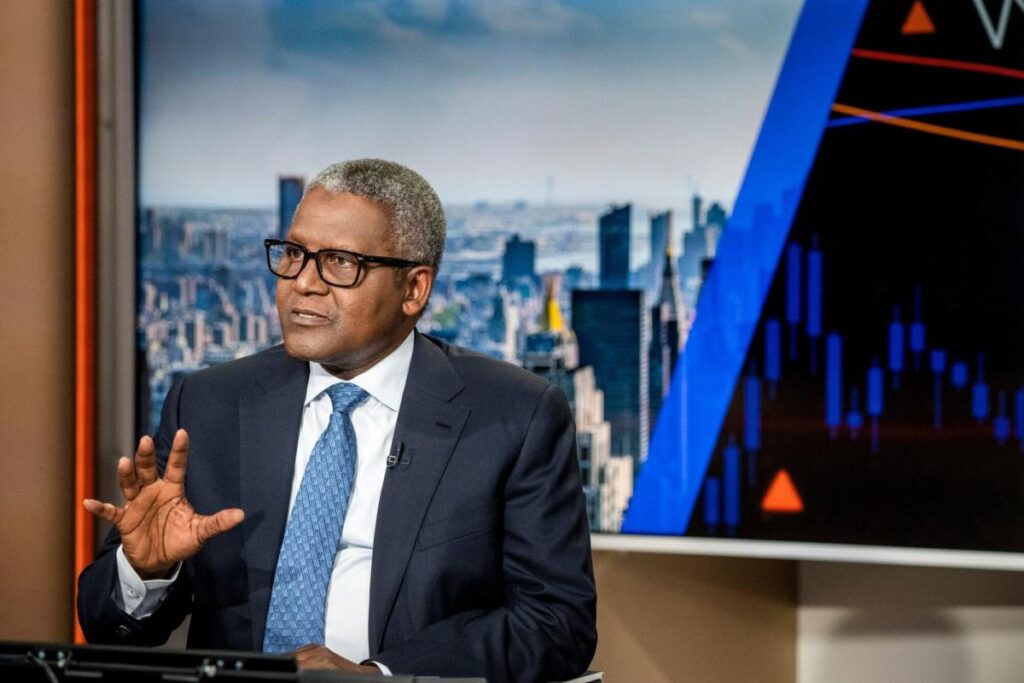Aliko Dangote, Africa’s wealthiest man, is experiencing unprecedented success with the launch of his massive Nigerian oil refinery, which has significantly increased his net worth to an estimated $27.8 billion. The Dangote Refinery, located outside Lagos, has emerged as the world’s largest single-train oil refinery, capable of processing a variety of crude oil types. This project, which represents a monumental leap for Nigeria’s economy, has the potential to make the country fuel self-sufficient. However, despite the financial gains and the ambitious dreams tied to the refinery, Dangote finds himself grappling with various challenges and frustrations that temper his mood.
The scale and complexity of the refinery project were beyond Dangote’s initial expectations. Over 11 years and with a total investment of $20 billion, the refinery has proven to be a formidable undertaking, fraught with challenges. Initially, the refinery was to be located at a different site, but local land disputes forced a relocation to a new area in Lagos, which had its own set of challenges, including environmental concerns and the need for extensive land reclamation. The COVID-19 pandemic further complicated matters, causing delays and financial strain. Despite these setbacks, Dangote remained focused on the larger aim of transforming Nigeria from an oil-exporting country to one that can refine its own resources, a move he believes could address the economic paradox of being Africa’s largest oil producer while lacking functional domestic refineries.
After commencing operations in January, the refinery faced immediate hurdles, including reliance on imported crude due to existing supply contracts binding the local output. This situation highlighted the difficulties in achieving profitability in a market plagued by a declining currency and ongoing government disputes over key economic factors. Negotiations surrounding crude supply and foreign exchange rates were fraught with tension, particularly given the changing political landscape with the new administration of President Bola Tinubu. Dangote expressed his frustrations openly, criticizing the political environment and the challenges posed by the state-owned Nigeria National Petroleum Corporation (NNPC), emphasizing the pervasive corruption in the oil industry.
The shift in Dangote’s public persona reflects a deeper frustration with the political environment. Historically, he maintained close relationships with Nigerian leaders, but the current administration’s stance and actions, including an investigation into his company’s dealings, have strained this rapport. His remarks during public appearances indicate a growing impatience with what he characterizes as corrupt practices within the industry that hinder his operations. This shift has garnered a mix of respect and scrutiny, as observers note that his willingness to speak out against these issues marks a significant change from his typically reserved demeanor in public discourse.
Navigating Nigeria’s rocky economic climate has also necessitated a strategic approach to financial management. With the naira losing substantial value against the dollar, Dangote’s emphasis on dollar-denominated revenue streams is increasingly crucial. He aims for Dangote Group to become the largest supplier of foreign currency in Nigeria, focusing on generating foreign exchange to mitigate the impacts of currency devaluation. Despite his deep ties to Nigeria, which are evident through his long-term residence in Lagos, he is also keenly aware of the need to manage and protect his wealth through more diversified global investments, including plans to establish a family office in Dubai.
Finally, Dangote’s ambition transcends mere economic success; he envisions a broader legacy intertwined with Africa’s development. While proud of his industrial accomplishments, he is also contemplating a philanthropic approach, aiming to donate over $10 billion to various causes over time. As he prepares for a gradual transition of leadership in his business to his family, including his children and grandchildren, he underlines the importance of creating a sustainable legacy for Africa. With his competitive spirit, Dangote compares his investment and industrial focus favorably against those in more traditional luxury sectors. His reflections reveal a commitment to fostering self-sufficiency in Africa, an aspiration that he believes will yield real and lasting impact on the continent’s economic landscape.

